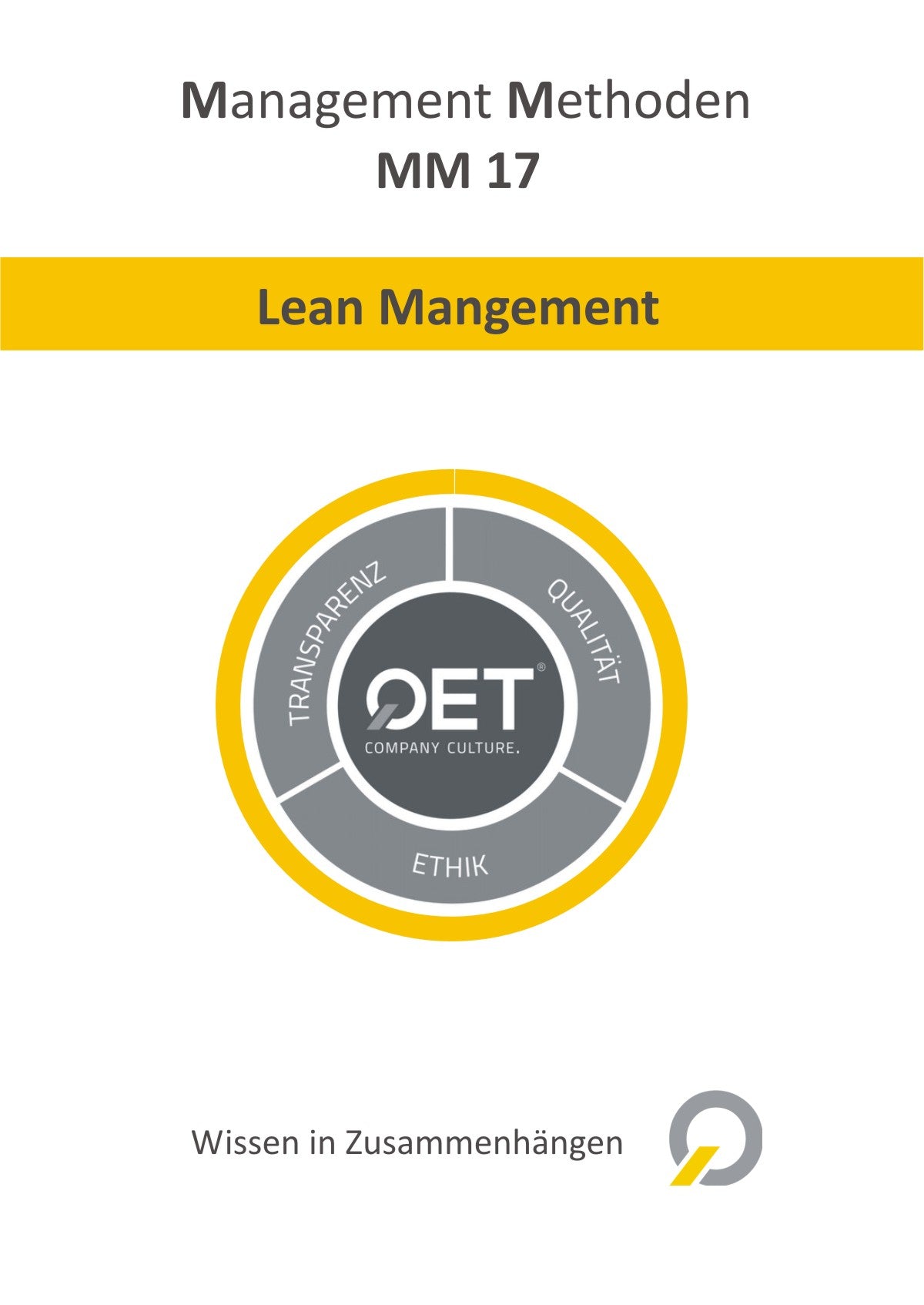QET Corporate Culture
MM 17 Lean Management
MM 17 Lean Management
Couldn't load pickup availability
Lean management is a corporate philosophy that aims to reduce all processes to what is essential for value creation, thus avoiding waste of time, money, and resources in general. Ten design approaches and five implementation principles have been formulated for this purpose. Because lean management is a very broad approach, it is applied in many areas, including lean leadership, lean development, and lean administration. It is closely linked to Kaizen (M14) and Six Sigma (M18), for example, also known as Lean Sigma.
In the middle of the last century, the Japanese automobile manufacturer Toyota sought ways to design a stable process organization. In the late 1940s, the company began reducing and completely eliminating processes that added no value to its end product. This laid the foundation for a business approach that increased productivity and efficiency, minimized cycle times, and also resulted in cost reductions. Since then, lean management has been adopted by companies across all industries and continues to be further developed by researchers.
In their 2003 book, "Organization Design," Friedrich Graf-Götz and Hans Glatz identify ten design approaches for lean management. These ten points are derived from the five principles formulated by James P. Womack and Daniel T. Jones in their 1996 book , "Lean Thinking: Banish Waste and Create Wealth in Your Corporation ."
In the context of:
Q: Q01, Q05, Q09, Q12, Q15, Q20
E: E04
T: T12,
Share

